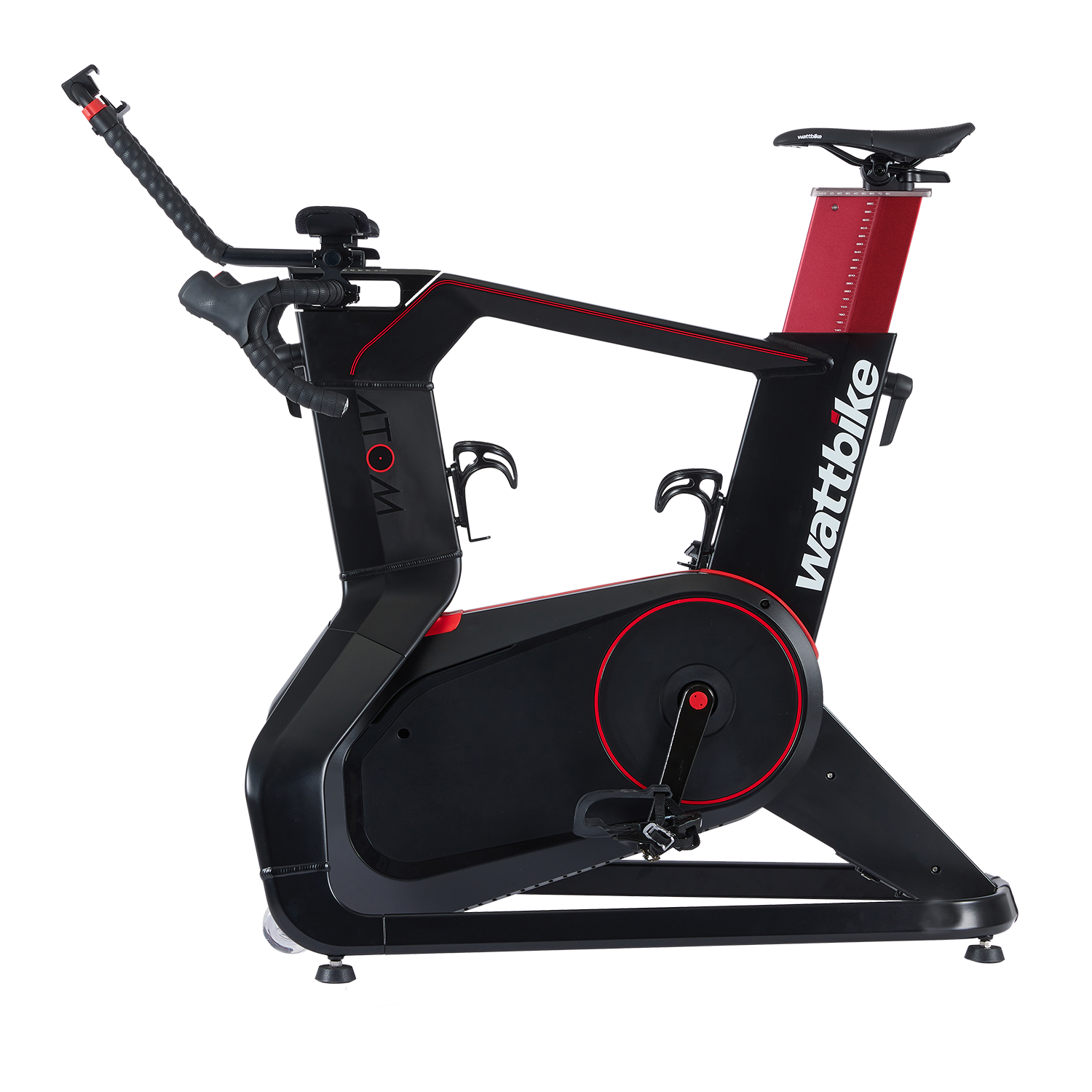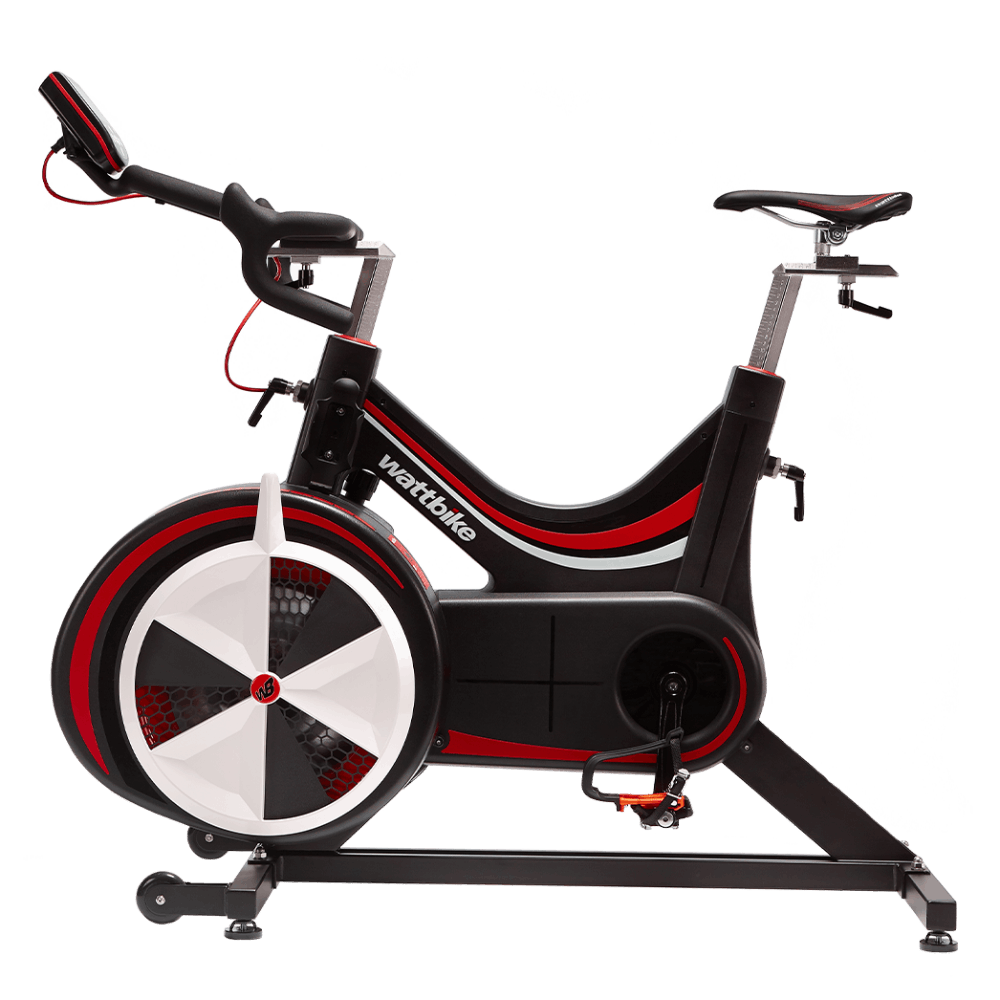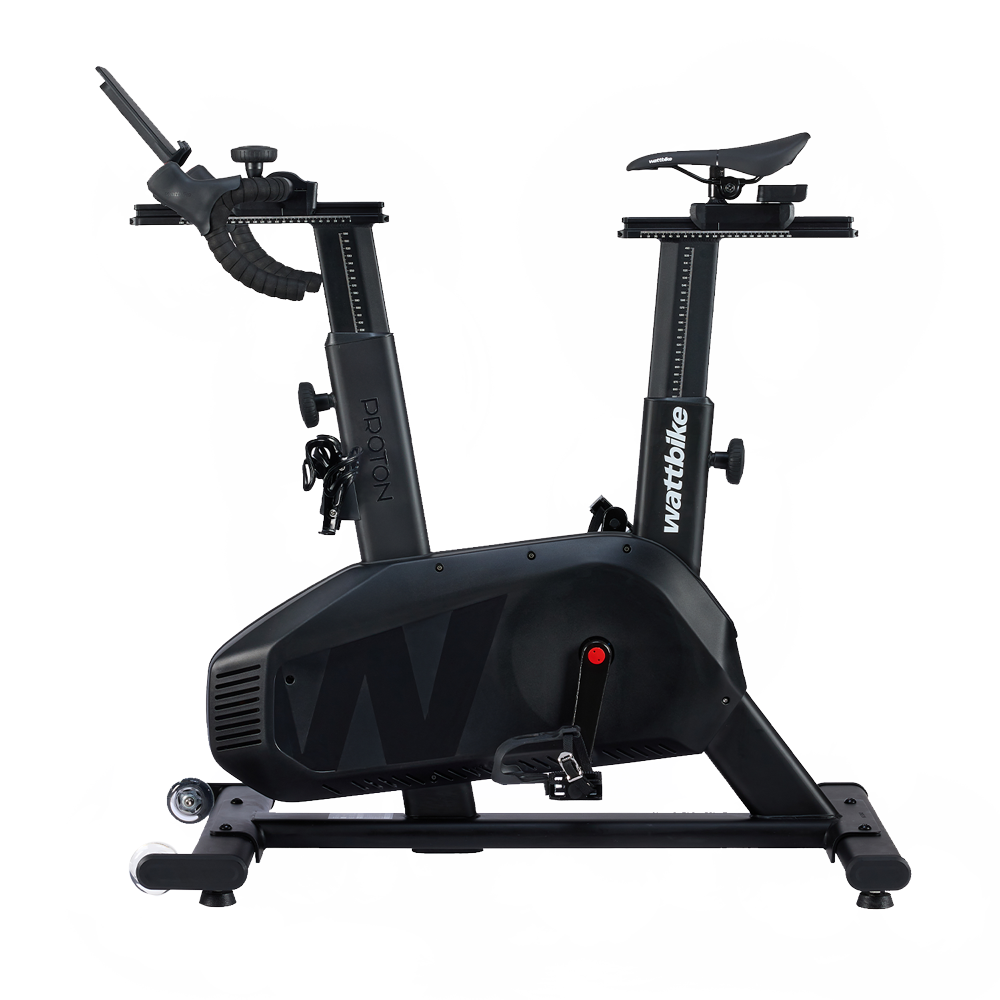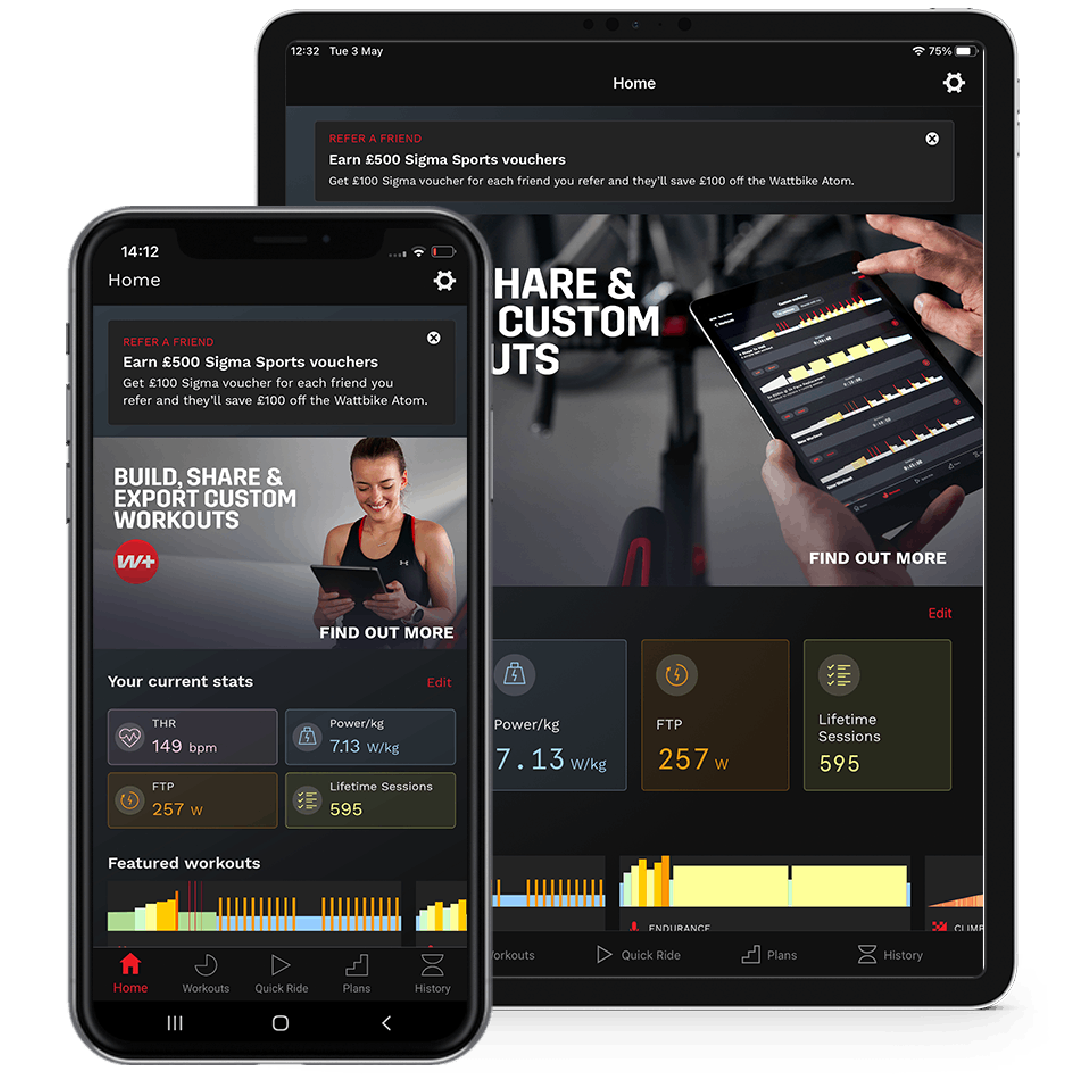Your Cart is Empty
shop
training & apps
support & services
news & information
How the Amateur Cyclist Can Use Power to Enhance Performance
June 02, 2015 3 min read
Training with power used to be strictly for the professionals, but now with power meter and indoor trainers like the Wattbike becoming more affordable, amateur cyclists can now benefit from this elite training experience.
Read on to find out how training with power can enhance your performance, plus some hints and tips to get you started.

What is power?
Power (Watts) measures your output of effort over a set time period. When riding your bike out on the road, power translates into your ability to move mass (ie. yourself and your bike) over distance (ie. your Saturday club route).
So what?
If power is your ability to move mass over distance, then an increase in power will result in a better ability to move mass over distance. Simply put, this means more power equals more speed.
3 benefits of training with power
Whilst more speed is clearly the number one benefit of training with power, there are three other key benefits you might notice if you train with power:
1. Training becomes more efficient, meaning every single session counts towards achieving your goal
2. Measurement of your fitness levels becomes quantitative and accurate, allowing you to identify improvements
3. Comparing your performance to your previous efforts, your friends or even professional athletes becomes easy, seeing your performance improve and striving to get closer to the power numbers of the pros can be extremely motivating
How to enhance your performance
Increase your speed using precise intervals
Incorporating intervals into your training is a great way to build up speed. Interval training with heart rate alone can be challenging due to heart rate lag, whereas training with a combination of heart rate and power allows you to measure the precise intensity of every interval and takes the guesswork out of your training.
Want to increase your speed using interval training? Take a look at one of our structured training plans, many of which include intervals to increase your speed and power.
Measure your fitness levels and identify your improvements
Training and more specifically testing with power gives you accurate results which can be used as a baseline performance measurement. If you test yourself regularly and follow a structured training plan, you’ll soon see an improvement in your power figures.
Further down the line, you will also start to notice a decrease in your heart rate for the same amount of power output - this is where you can tell you’re really starting to improve.
Compare yourself to the pros
Once you’ve started a structured training plan and you’ve been regularly testing, you’ll need to start comparing your performance to previous figures to see just how much you’ve improved. An easy way to monitor and compare your performance is via the Wattbike Hub, which allow you to upload and analyse your data anywhere at anytime.
What’s more, once you’ve seen an improvement in your own performance, the Hub lets you follow friends and even professional athletes like Joanna Rowsell, so you can see how your power numbers stack up against the competition.
Intrigued to see how you compare? Download the Wattbike Hub now and start your session!
A word about effective training
For the most effective training we recommend combining your power and heart rate data. To read more about how heart rate and power combine to bring you effective training, read our Sport Scientist Eddie Fletcher’s blog.
Also in Performance

Beat the Heat: Understanding Sweat Rate and Optimising Hydration for Summer Training
June 10, 2025 3 min read
As summer temperatures rise, so does the challenge of training and trying to maintain optimal performance. With the heat, sweat loss can lead to dehydration, reduced endurance, and impaired recovery.
Understanding your sweat rate and implementing effective hydration strategies can be a simple way to help you gain the edge in your training.

Wattbike X UA Next
October 18, 2024 2 min read
The Under Armour Next Academy at Battersea Power Station offers a comprehensive testing facility designed to push athletes to their limits through a series of six athletic tests, each targeting different aspects of fitness.
This facility focuses on empowering and testing the next generation of athletes through a series of assessments, including those on the Wattbike, which is used to measure key cycling metrics, such as power output, endurance, and fitness levels.

How to Improve VO2 Max
January 09, 2023 5 min read
Improving VO2 max means increasing your body’s effectiveness at using oxygen for exercise. Also known as VO2 peak, training this aspect can help to improve your endurance and output, whether training for a local race or just improving your fitness. Improve your VO2 max with indoor bike workouts designed by sports scientists.
Read MoreGet the latest!
News, training tips, offers and more, straight to your inbox.









